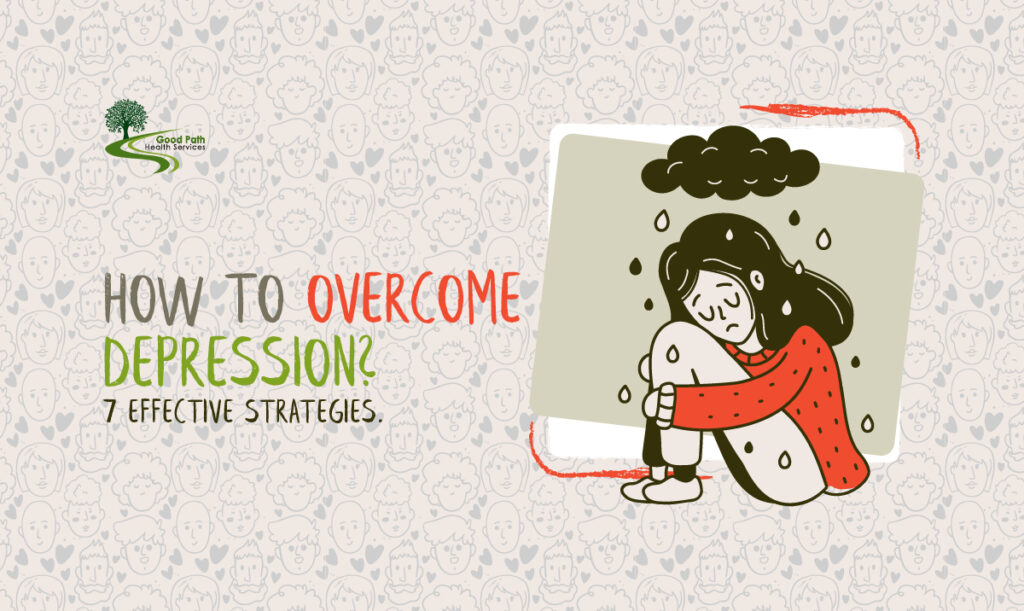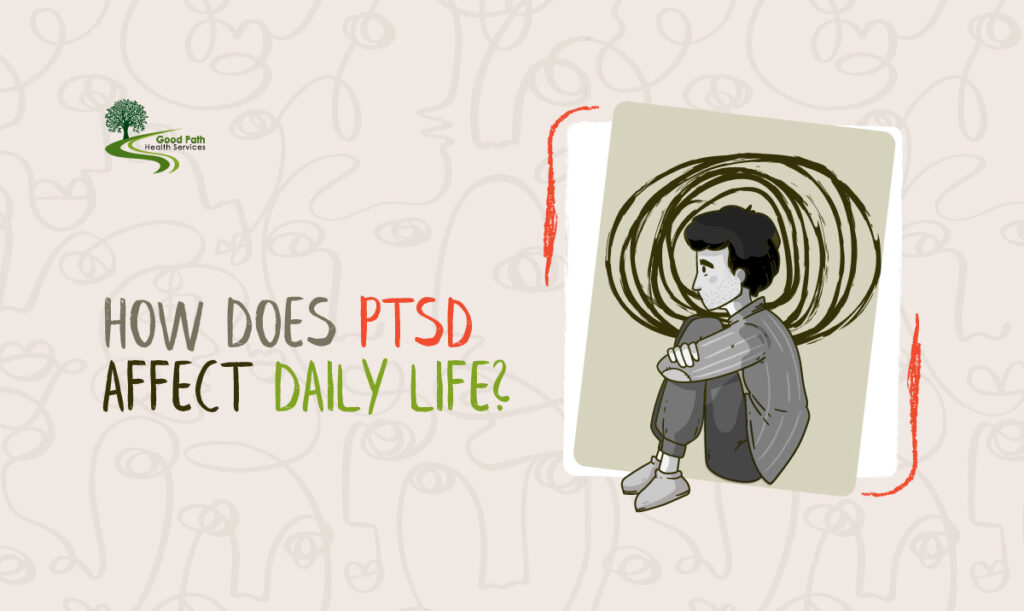
Impulse control is the greatest asset of a patient, healthy and prosperous person.
It’s an essential factor that can mean the difference between a productive day and one where nothing seems to get done, between saving up for a vacation three years down the line or splurging on a new gadget now, or between a stable and fulfilling relationship and one filled with harmful arguments.
When we talk about impulse control, what we are referring to is the ability to resist immediate urges and impulses to act in a rash or unproductive manner.
This skill, essential for self-discipline and self-regulation, quietly influences our personal and professional achievements.
In this guide, you will not only learn what impulse control is but, more importantly, you will learn some practical tips that can be added to your life to improve your competency in this area.
Self-mastery is something that can be developed through intentional acts.
What Is Impulse Control?
In its simplest form, impulse control is the ability to consciously decide whether to satisfy an immediate desire or to refrain from doing so in the pursuit of longer-term goals.
It resembles the cognitive discipline required to restrain oneself before succumbing to a fleeting desire.
When it comes to impulse control, the stakes are high.
Rather than intelligence, good impulse control predicts academic success.
In our personal lives, those adept at keeping their impulses in check are often found in better physical health and deeper relationships and are likely to be more financially secure.
Impulse Control Disorders
Despite everyone experiencing impulse control problems at one time or another, some are associated with pervasive difficulty.
In these cases, the person could be diagnosed with an impulse control disorder (ICD).
It’s a category of mental health disorders that cause difficulty in regulating one’s impulses and causing harmful behavior.
What Causes a Lack of Impulse Control?
Several factors, ranging from neurological to environmental, can influence one’s impulsivity.
- Neurological Factors: Differences in brain structure and function especially in areas for making decisions and self-control can make people more prone to impulsive behavior.
- Genetic Influences: Some traits linked with impulsivity can be passed on through generations.
- Psychological Conditions: Disorders like ADHD, bipolar disorder, and borderline personality disorder are associated with higher degrees of impulsiveness.
- Stress and Emotional Distress: Excessive stress or feeling emotionally overwhelmed can override our coping mechanisms causing impulsive acts as a way of escaping or achieving relief.
- Substance Abuse: The use of drugs or alcohol affects judgment as well as self-control, thus increasing the likelihood of impulsive actions.
- Environmental Factors: Growing up around chaotic or unstable places, not getting enough care from adults when growing up, copying behaviors from peers that are erratic makes it difficult for one to control their impulses.
How to Improve Impulse Control? – 7 Best Tips
Now it’s time to get to work.
Teaching impulse control to yourself is essential.
Improving your impulses is about adopting a new set of principles and practices that, over time, become part of your life.
They can subtly but powerfully alter your response to the temptations and triggers that entice you to take impulsive actions.
Seven tips to improve self-regulation are listed below.
1. Mindfulness
Mindfulness is the practice of bringing one’s attention to the present moment without judgment and has been celebrated for its positive impact on impulse control.
To be more mindful means to be fully immersed in what you are currently doing, to the neglect of everything else.
Practicing Presentness:
Developing a mindfulness routine doesn’t require hours in a week-long retreat.
A minute-long mindfulness exercise can start right now as you read these words.
- Observe how you feel the sensation of your breath entering and leaving your nostrils.
- Hear the sounds around you.
- Experience how your body feels against the chair.
This simple exercise of “anchoring” yourself can be effective at curbing impulsive behaviors.
2. Setting Clear Goals
Goals act like compasses in the sea of impulses.
They provide you with direction and offer a reason to resist temptations that steer you off course.
But not just any goals — clear, specific, and measurable ones.
The SMART Method:
The SMART method is a popularly known framework used in goal setting in which goals should be Specific, Measurable, Achievable, Relevant and Time bound.
For example, a target such as “exercise more” could easily succumb to an impulse to sink into a comfy couch for TV binging.
However, jogging for 30 minutes three times weekly to prepare for the 10K in four months is a SMART goal that works against immediate comfort.
3. Delayed Gratification
The concept of delayed gratification is about choosing to wait for a larger reward rather than accepting a small one immediately.
It’s a famous Stanford marshmallow experiment showed that children who could delay gratification had better life outcomes.
It’s something we can all train ourselves to do.
Making the Wait Worth It:
You can do this by learning to value the act of waiting. Each moment of resistance is a moment of personal growth.
Picture the long-term benefits of your resistance—a healthier body, a calmer mind, or financial freedom.
4. Creating Healthy Habits
Habits are autopilot habits by nature that save our brain power for the more pressing matters.
By creating and sustaining healthy habits, we’re pre-programming ourselves to make wiser decisions.
The Habit Loop:
Understand the habit loop—cue, routine, reward—and fill it with activities that reinforce impulse control.
The cue might be stress at work; the routine could be a 10-minute meditation; the reward is a sense of agency and peace that comes with intentional action.
5. Seeking Support Systems
Sometimes, it takes a supportive community to encourage self-control.
Create a social network that cheers your victories and holds you accountable for your lapses.
The Influence of the Right People:
Reflect on the people that surround you.
Are they the ones who encourage you to give in to impulsive behaviors, or those who nudge you towards more intentional living?
It could be a family member, a friend, or even a group or forum where like-minded people share their journeys towards better impulse control.
6. Managing Stress
Stress and impulse are closely interlinked.
The more stressed we are, the more likely we are to act impulsively as a coping mechanism.
Managing stress effectively can improve your ability to regulate impulses substantially.
Stress-Reduction Methods:
Create a list of stress-reducing activities that work for you.
This can be anything from a regular exercise routine to an hour of Netflix on the weekends, as long as it is a deliberate choice made to manage stress.
The most important thing is consistency and self-awareness—the best stress reliever is the one you look forward to and can rely on.
7. Practicing Self-Reflection
Self-reflection is like holding a mirror to your actions, thoughts, and behaviors.
It allows us to observe ourselves from a detached perspective and then make changes as necessary.
The ‘Why’ Behind the Action:
Ask yourself why you gave in to an impulse or why you resisted it.
Self-reflection is not about punishing yourself for past mistakes but understanding the thought patterns that shaped your actions.
Sometimes, the act of understanding can be the nudge you need to change course.
Benefits of Improved Impulse Control
The road to better impulse control is not the easiest.
It’s lined with snack runs that you passed by, extra hours that you spent on homework instead of TV, and purchases that you decided to save up for.
But the benefits? They’re substantial.
A better sense of impulse control translates into a better understanding of life.
You find that you can better direct your life’s path and stay on course—rather than being tossed about by every passing wind.
Below are some of the benefits that you can enjoy with better impulse control:
1. More Productivity
With the discipline to stave off distractions and focus on your tasks, productivity becomes a natural byproduct.
Projects get completed, goals get achieved, and you find that your to-do list seems more manageable than it used to be.
2. Better Decision-Making
Decisions made in the heat of the moment are often ones we regret.
With improved impulse control, you make decisions that align with your long-term vision and are less prone to act on fleeting emotions.
3. Healthier Lifestyle
Unhealthy eating habits, poor financial choices, and lack of exercise are often the results of impulsive actions.
Greater self-control means you are more likely to adopt and maintain a healthier lifestyle.
4. Improved Emotional Intelligence
You are able to better understand and manage your emotions with improved impulse control.
This enables you to build meaningful connections with those around you and better resolve conflicts.
5. Better Relationships
When you resist an impulse, you will avoid hurting or offending loved ones with impulsive, thoughtless remarks or actions.
This can lead to stability and closeness in your relationships.
Get Professional Help
Get therapy and medication management if impulsive behaviors are related to deeper psychological issues.
A licensed professional can help you assess the causes of your impulses and find ways to manage them.
A Final Word
Impulse control is an area where small progress can yield momentous changes.
By applying the seven tips outlined in this guide, you are taking deliberate steps towards a life defined not by hasty decisions but by conscious choices.
Each of us can improve our impulse control, and in doing so, we open up possibilities where our actions are in alignment with our aspirations.
Getting Started With Good Path Health Services
If you find that your impulsiveness is affecting your life negatively, Good Path Health Services can provide the help, resources and support you need to start managing your impulses.
For an initial appointment, please get in touch.
FAQs
What are some impulse control activities for adults?
- Cognitive behavioral therapy methods.
- Relaxation exercises.
- Journaling.
- Mindfulness practices.
- Physical activities like yoga or tai chi.
What are some impulse control activities for kids?
- Deep breathing exercises.
- Practicing waiting patiently.
- Playing board games that require turn-taking.
- Creative outlets like drawing or coloring.
- Participating in physical activities that require self-control (balancing, catching games, etc.)
What are some impulse control activities for teens?
- Meditation or mindfulness exercises.
- Journaling.
- Playing sports or activities that require cooperation.
- Volunteering or community service.
- Therapy or counseling sessions.
What are some therapy activities for impulse control?
Therapeutic activities for self-control can be:
- Role-playing situations that trigger impulsive behaviors.
- Learning relaxation techniques.
- Strategies for delayed gratification.
- Setting short-term goals.
- Cognitive restructuring exercises.
When does the development of impulse control begin?
The development of impulse control begins in early childhood and continues into adolescence and adulthood. It’s a gradual process that might be caused by:
- Cognitive development.
- Emotional regulation.
- Social interactions.
What are some simple impulse control exercises?
- Taking deep breaths before acting.
- Practicing mindfulness.
- Setting clear goals.
- Doing activities that require concentration and patience.
What are some impulse control goals?
- Identifying triggers.
- Practicing response delay.
- Extending the delay period by time.
Is there a link between autism and impulse control?
Yes, many people with autism experience difficulty with impulse control which can affect emotional regulation and social interactions.



